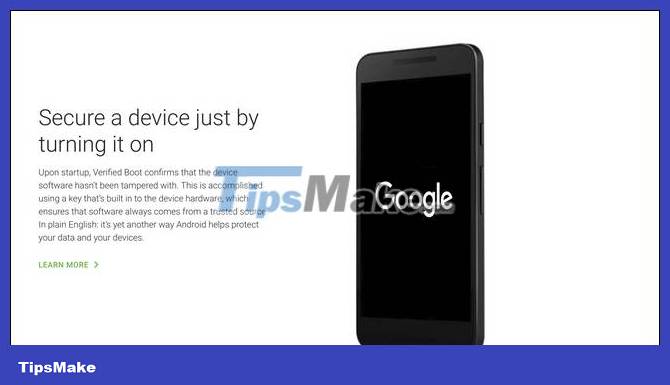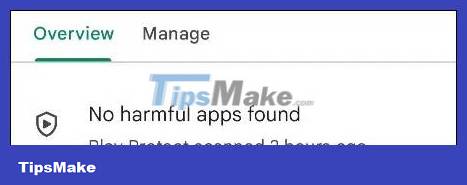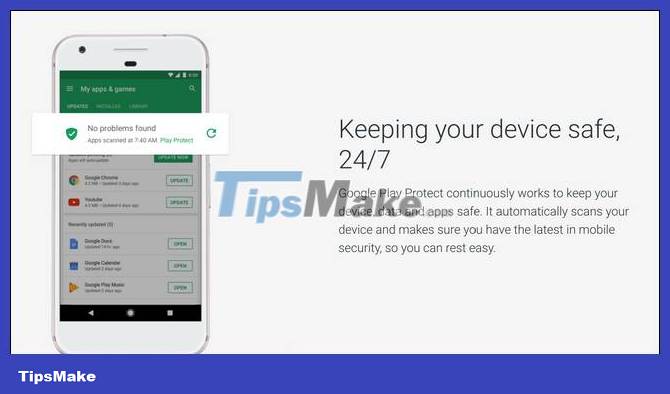For Android, is an antivirus application really necessary?
You might be surprised to learn that Android is the most popular operating system on the planet — even more so than Windows. This is also what makes it a popular target for various malicious activities. The question is do you really need an anti-malware (virus) application on your Android device?
This is truly an issue worth discussing. Antivirus software has been recommended for Windows users for many years. But what about Android?
Android is truly secure
Android itself is a fairly secure operating system. It may sound "strange" but this statement has received more and more approval in the past few years. All Android phones have a bootloader lock (system and operating system boot program) to prevent access to the system partition. By default, the sideload option of unapproved apps is disabled.

The above two options (unlock bootloader and sideload apps) are the most common ways for Android devices to be infected with malware, and both are blocked by default. In fact, most Android malware problems fall under these two methods because specific default security features are turned off. That's what makes Android different from other competitors. You are free to do what you want with your phone.
Google is making sideloading even more secure with Android Oreo. Instead of this feature being a generic setting like before, simply allowing or disallowing apps to be installed from outside the Play Store, it works on an app-by-app basis. That means it's possible to allow apps to be installed from a source other than the Play Store like the Amazon Appstore. Here's a clever way to handle this setting.
Simply put, if you don't intend to unlock the bootloader (which isn't even possible on many phones) or sideload apps, you're well protected by the system.
Google Play Protect
Android's largest built-in anti-malware protection system is Google Play Protect. This tool can scan all applications in the Play Store and also on the user's device. This is considered a program that protects devices from malware anytime, anywhere.
Every Android device that owns the Google Play Store has Play Protect. You may notice the message 'No Harmful Apps Found' at the top of the apps and games manager in the Play Store. Play Protect ensures the apps you download from the Google Play Store are always safe to use.

However, Play Protect does not only work within the Play Store. It also keeps an eye on applications that have been downloaded from outside, unofficial sources.
In addition to app scanning, Play Protect can also protect you when browsing the web with Google Chrome. Similar to Chrome for desktop, if you visit a website with malicious code, Chrome will issue a warning and return you to a safe state.
Regular monthly security updates
Another important thing to mention in Google's Android device protection mechanism is its policy of releasing monthly security updates. These are small updates, usually do not come with new features, but instead are modifications that help improve the stability and security of the operating system.
New vulnerabilities and attack methods appear every day. If your Android phone is only updated once a year, the threats will gradually pile up and become dangerous. That's why regular monthly security updates are essential.

Sadly, not all Android devices receive these periodic updates promptly or at all. Google releases security updates monthly, and authorizes its partners (Samsung, OnePlus, etc.) to approve, add their own fixes and release them to users.
If you want the most secure, and most updated Android phone, you should choose a Google Pixel or Samsung Galaxy device. Both Google and Samsung are highly appreciated for their policy of maintaining devices always updated with the latest patches.
And you don't need to install an antivirus application

Many antivirus companies have taken advantage of the 'virus incident' to release malware scanning applications on the platform. Of course you can install an antivirus app for Android if you want. However it really doesn't find anything that Google doesn't already know and protects better than Play Protect.
Of course, most antivirus apps on Android also do other things like block spam phone calls, protect your phone from being stolen, and offer many other features. Those are additional benefits, but these features have gradually been built into Android.
To be clear, you can use an anti-virus application if this makes you feel more secure, but if you still download applications from unknown sources, allowing third-party applications to use resources, perform what the operating system does, this makes no sense. Therefore, you just need to pay a little attention to the applications installed from Google Play and everything is safe.
See more:
You should read it
- ★ How to detect and remove malware Agent Smith on Android
- ★ What is Clipper Malware? How does it affect Android users?
- ★ Mobile malware infection rate increased by 400% in the past year. Android has the highest rate
- ★ Discovering many applications containing malware on Google Play Store, Android users should worry gradually
- ★ Detecting new malware on Android can damage phones